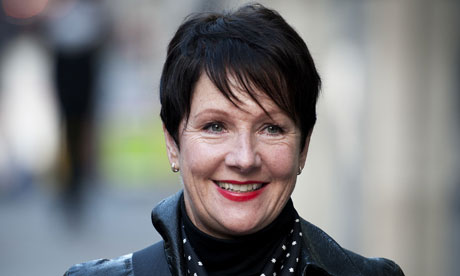The BBC-commissioned report comes just over a year after former Countryfile presenter Miriam O’Reilly won her landmark ageism case against the BBC. Photograph: Rex Features
The survey of viewers and industry experts found that more than 40% of young people were dissatisfied with the way they were portrayed on screen.
Younger viewers complained that they were stereotyped as being "disrespectful" and living "unproductive and vacuous lives".
Older viewers also thought they tended to be stereotyped on television, but of more concern was the lack of middle-aged and older women on the small screen.
"There was a particular and strong concern voiced about the lack of middle-aged and older female representation on television," said the report.
"This view was expressed by both men and women of all ages but was much more ardently voiced by middle-aged and older women who believed that a person develops a 'face for radio' at a certain point in their middle years."
More than a third of women over 55 said there were too few of them on television.
The negative portrayal of older people revolved around the perceived incapacity of old people and "perceptions about a reluctance to move with the times and tendency to moan", said the report.
Viewers accused the media of being "insulting" and "out of step" with the ageing society.
"There is some concern about the way different ages are sometimes at best presented as slightly humorous but exaggerated caricatures and at worst as negative stereotypes," concluded the report.
It said the audience would "welcome more middle- and older-aged women on television providing positive role models and greater genderequality".
The research was commissioned by the BBC on behalf of the Creative Diversity Network, a forum of UK media organisations set up to improve diversity across the industry and chaired by BBC director general Mark Thompson.
It followed O'Reilly's high-profile tribunal victory in January last year.
The report, called Serving All Ages and carried out by independent social research institute NatCen, interviewed 180 participants, aged from 13 to 92, as well as industry experts.
It investigated how people felt they were portrayed in relation to their age in the media as a whole, including TV, radio and the internet.

